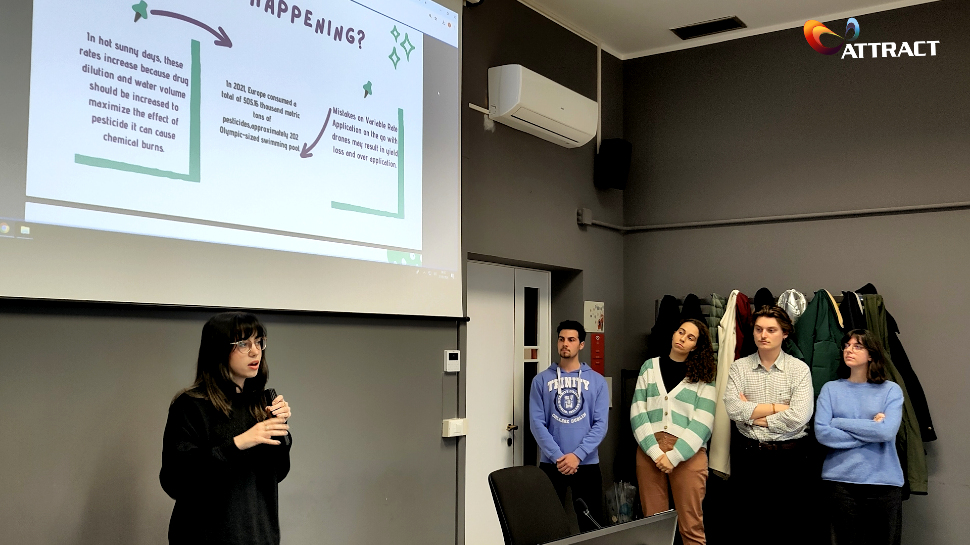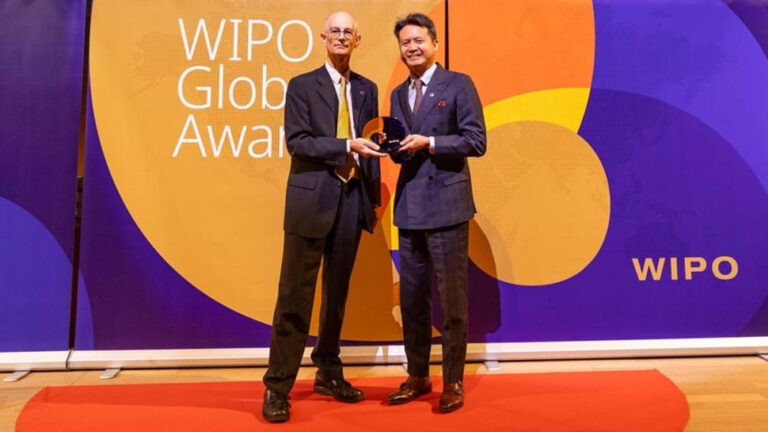The CBI.ATTRACT program aims to develop the students’ entrepreneurial mindset as future innovation players while ensuring the valorisation of existing innovative technologies and applying them to solve societal needs. Its methodology is a hybrid model based on the human-centred approach of Design Thinking and Tech-Driven Innovation processes to nurture the students’ ability to identify and evaluate technology opportunities with societal impact on a global and local level.
This program underscores the critical role of universities in driving regional innovation by equipping students with the tools and experiences necessary to tackle global and local challenges through innovative solutions.
Discover more about the CBI.ATTRACT program through this interview featuring a teacher and a student who participated in this program.
Matteo Vignoli
Assistant Professor, University of Bologna
What is your personal and career journey so far?
I was trained as a management engineer and did my PhD in organizational design. Then I went to Stanford to study how design could be applied to innovation and to Toronto Metropolitan University to research how business could help innovation projects. Then I joined forces with CERN IdeaSquare 12 years ago to develop the format that is now known as CBI. And it’s 12 years that I have helped science to connect with society.
Which university and courses are part of your consortium and what brings you all together?
Our consortium is formed by the University of Bologna, the University of Modena and Reggio Emilia, and the University of Ferrara, and is supported by Almacube. We all belong to the same region, which is Emilia-Romagna, and we joined forces because we want to give our students the opportunity to learn how to create innovation starting from deep tech.
How do you think society will benefit from this project?
Collectively, in our territory, there are 12,000 researchers and we believe that our universities can leverage the students to transfer their technology to society. We are happy because our university decided to continue the next year, the CBI.ATTRACT program so that more technology could be transferred to society.
How do you envision participating in this project will contribute to your personal and professional development?
This program has been an exciting journey leading me to discover how technologies can contribute to society. I’ve been to CERN, Synchrotron in Trieste, and several labs around the world with my students. This is helping me to develop a new methodology on how to connect technologies, develop the scientific context to society, and also to discover an ecosystem of companies, startups and students that can create our future.
Alice Turrini
Master’s student in Artificial Intelligence, University of Bologna
What is your personal and career journey so far?
I’m a computer science engineer as I always been very excited about IT stuff, but then now I decided to specialize in artificial intelligence. So, I’m studying a master’s in AI here in Bologna. I love this field of application because I could use it everywhere as we know.
How do you find working with the R&D&I projects?
To be honest, at the beginning, it was very hard and challenging facing these such advanced technologies having just my basic background, but now I feel much more comfortable talking directly to the research team after doing a lot of research and studying on the technology.
How do you think society will benefit from this project?
I believe that the goal of bridging from physicist laboratories toward the real world into direct society is very concrete and impactful. For example, with my team researcher, the h-cube technology, we are planning to arrive directly to the people using, for example, in the medical field or food monitoring.
How do you envision participating in this project will contribute to your personal and professional development?
I’ve always thought that for the hard skills we can always study, but especially for the soft skills, you can have to work hard for them. And so, in this project, I am managing with that, where I’m developing a lot of connections, networking, getting to know people, and working in a multidisciplinary team that sometimes could be hard as we can imagine. And I think that this will be very useful in the real concrete world after university.
For more information
Visit the CBI.ATTRACT program site.


